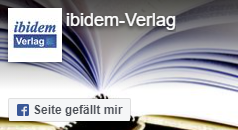- About the book
-
Details
This handbook is the first collection of comprehensive teaching materials for teachers and students of Central Asian Studies (CAS) with a strong pedagogic dimension. It presents 22 chapters, clustered around five themes, with contributions from more than 19 scholars, all leading experts in the field of CAS and Eurasian Studies. This collection is not only a reference work for scholars branching out to different disciplines of CAS but also for scholars from other disciplines broadening their scope to CAS. It addresses post-colonial frameworks and also untangles topics from their ‘Soviet’ reference frame. It aims to de-exoticize the region and draws parallels to European or to historically European-occupied territories. In each chapter, the handbook provides a concise but nuanced overview of the topics covered, in which way these have been approached by the mainstream literature, and points out pitfalls, myths, and new insights, providing background knowledge about Central Asia to readers and intertwine this with an advanced level of insight to leave the readers equipped with a strong foundation to approach more specialized sources either in classroom settings or by self-study. In addition, the book offers a comprehensive glossary, list of used abbreviations, overview of intended learning outcomes, and a smart index (distinguishing between names, locations, concepts, and events). A list of recorded lectures to be found on YouTube will accompany the handbook either as instruction materials for teachers or visual aids for students. Since the authors themselves recorded the lectures related to their own chapters, this provides the opportunity to engage in a more personalized way with the authors. This project is being developed in the framework of the EISCAS project (www.eiscas.eu), co-funded by the Erasmus + Program of the European Union. - The author
-
About the author
Bruno De Cordier is professor at the Department of Conflict and Development Studies under the Faculty of Political and Social Sciences of Ghent University. Before, he was working for the international humanitarian aid sector, mostly for specialized bodies of the UN, and partly in different countries of the former USSR. His interests include social history, identity and social mobility, the social impact of globalization, the aid economy, and the social role and position of Islam, Christianity, and of religious actors in general.
Adrien Fauve is Assistant Professor of Politics and International Relations at Paris-Sud University. Previously, he was a post-doctoral fellow at CNRS (2016-2017) and within Bruno Latour’s FORCCAST project on active learning (2013-2016). For seven years, he has coordinated the Central Asia seminar series at CERI-Sciences Po with Karlygash Abiyeva, Olga Spaiser, Bayram Balci, and Olivier Ferrando (2010-2017). His research focuses on political sociology and international relations, with fieldworks in Central Asia. Recent publications include articles in the Nationalities Papers, Central Asian Survey, and Revue d’Etudes Comparatives Est-Ouest.
Jeroen J. J. Van den Bosch has a background in Area Studies (Slavonic Studies) and Political Science (International Relations). He studied at the Catholic University in Leuven; in Irkutsk (IGLU, Russian Federation); Cracow (Jagiellonian University); Moscow (Pushkin Institute); and since 2010 in Poznań (Adam Mickiewicz University). He was editor-in-chief of the political science journal R/evolutions: Global Trends & Regional Issues. Currently, at AMU he acts as coordinator of the EISCAS project and is assistant-coordinator in the EISIPS sister-project, also an Erasmus+ Strategic Partnership. His research fields encompass theories of dictatorships, autocratic cooperation, democratization, political regimes theories, African politics (sub-Saharan Africa), and Central Asia. - Reviews
-
Reviews
"The Handbook features leading European and international scholars studying Central Asia who bring rich insights from the region and offer robust analysis on a wide range of topics. It provides a useful guide to social science departments across continents."—Erica Marat, College of International Security Affairs, National Defense University
"A long-awaited pedagogical volume on an still unknown but key region in today's world. A must-read for students and teachers on Central Asia."—Marlène Laruelle, George Washington University, Elliott School of International Affairs - Additional Information
-
Additional Information
Delivery time 2-3 Tage / 2-3 days Author Catherine Poujol, Vincent Fourniau, Justyna Hadas, Bernardo Telos Fazendeiro, Maria Raquel Freire, Julia Schwab, Bhavna Davé, Suzanne Harris-Brandts, Baktybek Kainazarov, Abel Polese, Gian Marco Moisé, Luca Anceschi, Natalie Koch, Jeremy Smith, Scott Newton, Sebastien Peyrouse, Rano Turaeva, Svetlana Gorshenina, Slavomir Horak, Oguljamal Yazliyeva Editor Jeroen Van Den Bosch, Adrien Fauve, B. J. De Cordier Number of pages 1162 Language English Publication date Sep 14, 2021 Weight (kg) 1.5120 ISBN-13 9783838215181













